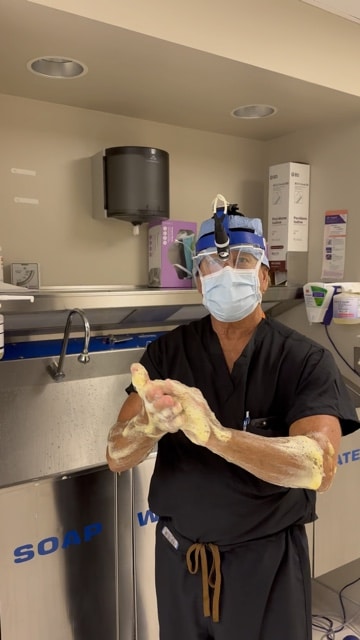Facing surgery, especially one as significant as orthopedic surgery, can be a mix of emotions ranging from anticipation to uncertainty. As an orthopedic surgeon committed to patient-centered care, I believe that empowering patients with information is crucial for informed decision-making. To help you navigate the journey ahead, here are the top 10 questions you should consider asking your orthopedic surgeon before undergoing surgery.
- What Are My Surgical Options?
Understanding the different surgical options available for your condition is the first step towards informed decision-making. Ask your orthopedic surgeon to explain the various procedures, including their benefits, risks, and expected outcomes. This knowledge will enable you to make a choice that aligns with your preferences and goals.
- What Are the Potential Risks and Complications?
All surgeries carry some degree of risk. Ask your surgeon about the potential risks and complications associated with the procedure you’re considering. This will help you prepare mentally and take appropriate precautions to mitigate these risks.
- What Is the Expected Recovery Time?
Knowing the anticipated recovery timeline is essential for planning your postoperative period. Ask your surgeon about how long you can expect to be in the hospital, when you can resume daily activities, and when you’ll be able to return to work or engage in physical activities.
- What Kind of Anesthesia Will Be Used?
Understanding the type of anesthesia used during the procedure is important for managing your comfort and expectations. Discuss any concerns you might have about anesthesia, and ask about the potential side effects or risks associated with the chosen method.
- How Will Pain Management Be Handled?
Pain management is crucial for a comfortable recovery. Ask your surgeon about the pain management strategies that will be employed, including the type of pain medications, their potential side effects, and how pain will be monitored and controlled after surgery.
- What Can I Do to Prepare for Surgery?
Preparing for surgery goes beyond just the physical aspects. Inquire about any preoperative instructions, such as dietary restrictions, medication adjustments, and lifestyle changes that can optimize your surgical experience and recovery.
- How Can I Optimize My Postoperative Recovery?
Your active participation in the recovery process can significantly impact your outcomes. Ask your surgeon about postoperative exercises, physical therapy, and lifestyle adjustments that can expedite healing and enhance your overall recovery.
- What Should I Expect During the Hospital Stay?
Understanding what to expect during your hospital stay can help alleviate anxiety. Inquire about the duration of the hospital stay, the role of nursing staff, and any specific protocols you need to follow.
- How Will the Surgery Affect My Lifestyle?
Depending on the nature of the surgery, there may be temporary or permanent changes to your lifestyle. Discuss how the surgery might impact your daily routines, work, hobbies, and physical activities. This information will help you plan for adjustments in advance.
- What Are the Long-Term Results and Expectations?
It’s important to have realistic expectations about the long-term outcomes of the surgery. Ask your surgeon about the expected results, including factors such as pain reduction, improved function, and the longevity of the procedure’s effects.
Bonus Question: Can I Get a Second Opinion?
If you have any doubts or concerns, don’t hesitate to seek a second opinion. A second opinion can provide additional insights, offer different perspectives, and help you feel more confident about your decision.
Conclusion: Empowering Your Journey
Asking these questions before surgery can equip you with the knowledge needed to make informed decisions about your care. A patient-centered approach to healthcare involves open communication, shared decision-making, and a partnership between you and your medical team. Remember, your orthopedic surgeon is there to support you every step of the way, ensuring that you’re well-prepared for surgery and poised for a successful recovery. By taking an active role in your healthcare journey, you’re taking a proactive step towards a brighter, pain-free future.

